Daily Vocabulary Words: List of Daily Used Words in Leading Indian Newspapers
Hi there. Welcome to this special section @ Wordpandit. Our endeavour here is straightforward: highlighting daily vocabulary words that you would come across in leading newspapers in the country. We have included the following newspapers in our selection:
• The Times of India
• The Economic Times
• Hindustan Times
• Mint
• Indian Express
We are putting in extensive work to develop your vocabulary. All you have to do is be regular with this section and check out this post daily. This is your repository of commonly used words; essentially, we are posting a list of daily used words. Hence, this has significant practical application as it teaches you words that are commonly used in leading publications mentioned above.
Visit the website daily to learn words from leading Indian newspapers.
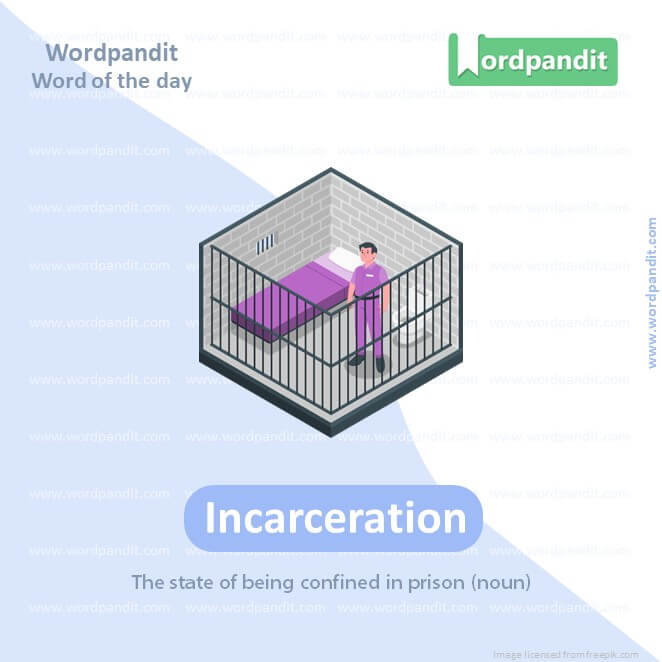
WORD-1: Incarceration
CONTEXT: Prisons are meant to hold the convicted, not punish with incarceration those who have not yet been properly tried.
SOURCE: Hindustan Times
EXPLANATORY PARAGRAPH: Think of a time when you were told to stay in your room without leaving because you did something wrong. Incarceration is like that but for grown-ups. It means someone has to stay in a place called prison and can’t leave because they broke a rule that is very important.
MEANING: The state of being confined in prison (noun).
PRONUNCIATION: in-kar-suh-RAY-shun
SYNONYMS: Imprisonment, Confinement, Detention, Captivity, Lockup, Jail, Custody
USAGE EXAMPLES:
1. The judge sentenced him to five years of incarceration.
2. Programs aimed at reducing the rates of incarceration are being implemented.
3. Her research focuses on the effects of incarceration on families.
4. Incarceration rates have been rising over the years.
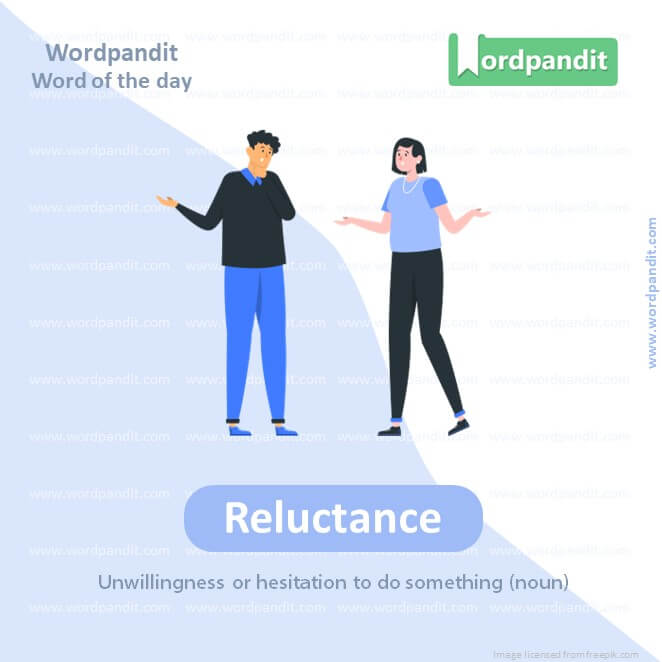
WORD-2: Reluctance
CONTEXT: Delays in deciding and reluctance to grant or ability to afford bail directly contribute to overcrowding in jails.
SOURCE: Hindustan Times
EXPLANATORY PARAGRAPH: Imagine you really don’t want to eat your broccoli, even though you know it’s good for you. Reluctance is that feeling of not wanting to do something or being unsure about doing it.
MEANING: Unwillingness or hesitation to do something (noun).
PRONUNCIATION: reh-LUK-tuhns
SYNONYMS: Hesitation, Unwillingness, Resistance, Disinclination, Aversion, Hesitancy, Refusal
USAGE EXAMPLES:
1. His reluctance to join the team was clear.
2. Despite her reluctance, she agreed to help.
3. There was a general reluctance to change the plan.
4. The reluctance to invest in new technology was noticeable.
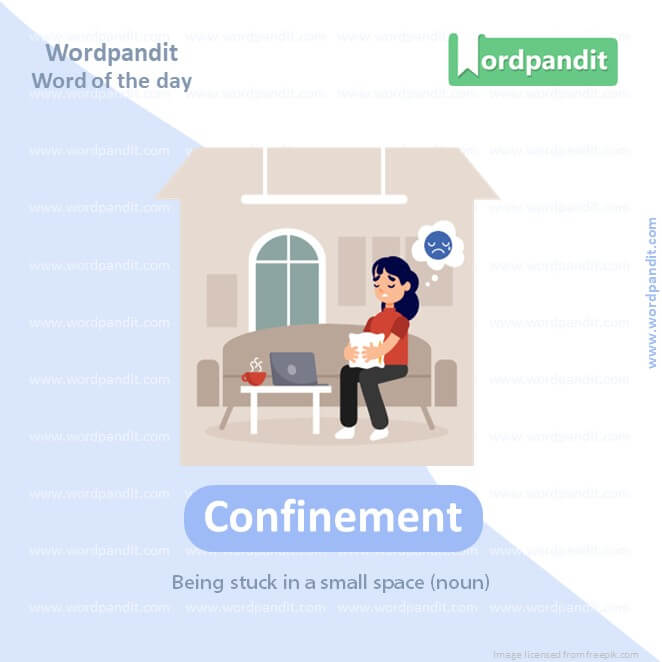
WORD-3: Confinement
CONTEXT: In 2012, 22% of them spent between one and five years in confinement; a decade later, despite targeted initiatives aimed at releasing undertrials, the percentage has risen to 28%.
SOURCE: Hindustan Times
EXPLANATORY PARAGRAPH: Imagine being in a small space where you can’t move around much or go where you want, like being in a small room and not being able to go outside and play. Confinement is being in a place where you’re limited and can’t move freely.
MEANING: Being stuck in a small space (noun).
PRONUNCIATION: kuhn-FINE-muhnt
SYNONYMS: Imprisonment, Detention, Captivity, Restraint, Incarceration, Seclusion, Isolation
USAGE EXAMPLES:
1. The animal was kept in confinement for its safety.
2. His confinement in the small room made him feel anxious.
3. The patient was under confinement for medical reasons.
4. She felt a sense of relief after her confinement ended.
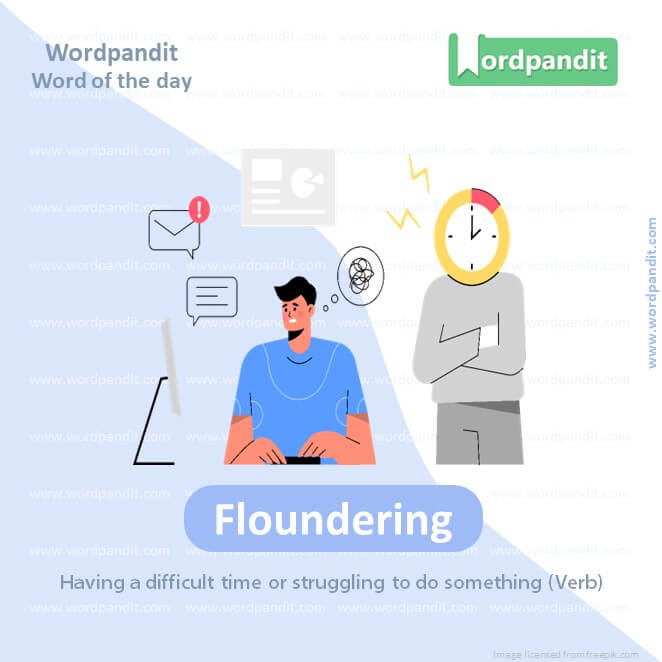
WORD-4: Floundering
CONTEXT: The “north-west” wave that swept the BJP to power on both previous occasions threatens to do so again in a vast belt stretching from the western seaboard to the Hindi heartland, leaving the Congress floundering.
SOURCE: Hindustan Times
EXPLANATORY PARAGRAPH: Imagine trying to walk through a really muddy puddle and your feet keep slipping and you can’t get across easily. Floundering is when you’re trying to do something but having a really hard time and not getting anywhere fast, like struggling in that muddy puddle.
MEANING: Having a difficult time or struggling to do something (Verb).
PRONUNCIATION: FLOUN-duhr-ing
SYNONYMS: Struggling, Stumbling, Blundering, Failing, Staggering, Flailing, Lurching
USAGE EXAMPLES:
1. He was floundering in his attempts to learn the new software.
2. The company has been floundering since the departure of its CEO.
3. She floundered through her presentation, forgetting key points.
4. Without a clear plan, they floundered for months.
WORD-5: Spurred
CONTEXT: There is also a growing disconnect between the party’s status quoist central leadership and restive state units that has spurred periodic acts of rebellion.
SOURCE: Hindustan Times
EXPLANATORY PARAGRAPH: Imagine you have a toy horse and you want it to go faster, so you tap its sides gently with your heels. In real life, cowboys use something called spurs to encourage their horses to move faster. Spurred means being pushed or encouraged to do something more quickly or to work harder.
MEANING: Motivated or encouraged to do something (verb).
PRONUNCIATION: spurd
SYNONYMS: Motivated, Encouraged, Stimulated, Provoked, Urged, Driven, Prompted
USAGE EXAMPLES:
1. The promise of a bonus spurred the employees to work harder.
2. She was spurred into action by the urgent situation.
3. The need for change spurred the community to protest.
4. His interest in science was spurred by a visit to the museum.
WORD-6: Rumblings
CONTEXT: Modi’s personality cult towers over all else, there may be private rumblings over the highly centralised decision-making but no one dares to rebel against the diktats from above.
SOURCE: Hindustan Times
EXPLANATORY PARAGRAPH: Imagine you’re lying in bed at night and you hear the sound of distant thunder, like a deep, low grumbling noise coming from the sky. That sound is like what rumblings are, but it doesn’t just have to be thunder. Rumblings can be any kind of deep, low noise you hear, or sometimes it even means that people are starting to talk about something a lot, like when a bunch of people are quietly talking about something that might happen soon.
MEANING: A series of low, deep sounds or noises; early signs or indications of dissatisfaction or unrest (noun).
PRONUNCIATION: RUHM-blingz
SYNONYMS: Murmurs, Grumblings, Echoes, Vibrations, Whisperings, Stirrings, Preamble
USAGE EXAMPLES:
1. The rumblings of the volcano warned of an imminent eruption.
2. There are rumblings of discontent among the employees.
3. He could hear the distant rumblings of thunder approaching.
4. The political rumblings in the capital hinted at upcoming changes.
5. The market has been nervous due to economic rumblings globally.
WORD-7: Atrophying
CONTEXT: A third big Lok Sabha defeat would be catastrophic, only accelerating the distinct atrophying of a once dominant force.
SOURCE: Hindustan Times
EXPLANATORY PARAGRAPH: Imagine a plant that isn’t watered for a long time. It starts to wither and can’t grow anymore. Atrophying is similar, but it can happen to muscles in the body when they’re not used for a long time, or to skills or abilities that get weaker because they’re not practiced.
MEANING: The process of gradually declining in effectiveness or vigor due to underuse or neglect (verb).
PRONUNCIATION: AT-ruh-fye-ing
SYNONYMS: Wasting away, Weakening, Deteriorating, Degenerating, Shrinking, Diminishing
USAGE EXAMPLES:
1. Without regular exercise, the muscles start atrophying.
2. The unused property was atrophying, losing its value over time.
3. Skills can begin atrophying if they are not regularly practiced.
4. The community’s interest in the project began atrophying due to lack of updates.
WORD-8: Delegitimise
CONTEXT: China resolutely denounced the decision and ran a massive media campaign to delegitimise the verdict.
SOURCE: Hindustan Times
EXPLANATORY PARAGRAPH: Think of when someone tries to prove that a rule or someone’s authority isn’t fair or right. Delegitimising is like saying, “This isn’t valid or acceptable,” about something that was once respected or recognized as legitimate.
MEANING: To diminish or destroy the legitimacy, credibility, or recognized status of something (verb).
PRONUNCIATION: dee-lih-JIT-uh-mize
SYNONYMS: Discredit, Invalidate, Undermine, Disprove, Denounce, Nullify
USAGE EXAMPLES:
1. The scandal served to delegitimise the authority of the government.
2. Critics attempt to delegitimise the study’s findings due to a lack of evidence.
3. The movement aims to delegitimise the outdated practice.
4. Efforts to delegitimise the election results were met with widespread criticism.
WORD-9: Bolstering
CONTEXT: While this is a welcome development aimed at bolstering border infrastructure along the LAC, more must be done to counter Chinese provocation effectively.
SOURCE: Hindustan Times
EXPLANATORY PARAGRAPH: Imagine you’re building a fort and you add more pillows to make it stronger and more stable. Bolstering is like that, but not just with forts. It’s about making anything stronger or more supported, whether it’s an argument, a feeling, or a position.
MEANING: Supporting or strengthening something (verb).
PRONUNCIATION: BOWL-stur-ing
SYNONYMS: Supporting, Strengthening, Reinforcing, Shoring up, Fortifying, Enhancing, Buttressing
USAGE EXAMPLES:
1. The company is bolstering its marketing efforts to increase sales.
2. She read several books to bolster her argument for the debate.
3. Additional evidence was needed to bolster the case against the defendant.
4. Bolstering the economy is a priority for the government.
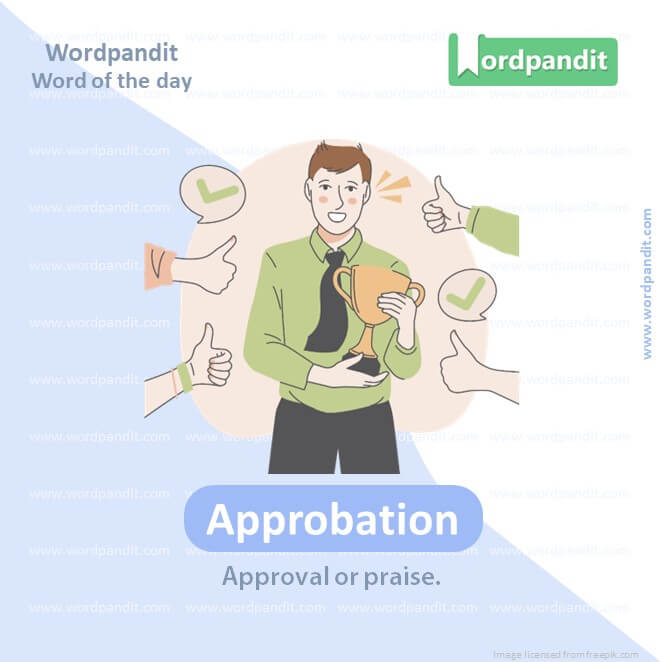
WORD-10: Approbation
CONTEXT: I noticed Nariman erupt in delighted applause, thumping the desk in front of him, with the Central Hall resounding with approbation.
SOURCE: Hindustan Times
EXPLANATORY PARAGRAPH: Think about the feeling you get when someone says “good job” after you’ve done something well. Approbation is like a more formal way of saying that. It’s when someone approves of something or shows that they think it’s good.
MEANING: Approval or praise (noun).
PRONUNCIATION: ap-ruh-BAY-shun
SYNONYMS: Approval, Praise, Endorsement, Acclaim, Commendation, Admiration, Consent
USAGE EXAMPLES:
1. She earned the approbation of her peers with her groundbreaking research.
2. The novel received widespread approbation from critics.
3. His plan won the approbation of the committee.
4. The chef’s new dish sought the approbation of the diners.
vocabulary learning app
Immersing oneself in a new language or enhancing one’s word pool in native tongue is a demanding undertaking. However, recent advancements in technology have provided an efficient solution to this endeavor: the vocabulary learning app. Embracing this digital tool can not only broaden your lexicon but also refine your language proficiency in an intriguing manner.
The crux of any vocabulary learning app lies in its ability to simplify complex language constructs and present them in an engaging and digestible format. Competitive apps offer features like flashcards, quizzes, and games that make learning less academic and more leisurely. Whether you’re a student struggling to learn English vocabulary or a language enthusiast eager to master Spanish, the vocabulary learning app serves as a robust platform to meet your linguistic goals.
Learning with a vocabulary learning app should be a systematic and consistent process. Starting with easy levels and gradually progressing to complex words allows for a steady language learning journey. Many learners make the mistake of rushing through levels which eventually results in an unclear understanding of words.
Interactivity defines the efficacy of any vocabulary learning app. Studies show that one learns faster and retains knowledge longer when they interact with the learning material. Therefore, effective use of the vocabulary learning app involves actively engaging with its various features – be it pronunciation guides, image associations, or sentence formulation exercises and repeating words or phrases until they resonate with you.
Another vital aspect of learning with a vocabulary learning app is consistent review and reinforcement. Periodic revision strengthens the neural connection, reinforcing the word memory in your mental database. Hence, make sure to set aside specific review periods within your app.
In summary, a vocabulary learning app shines in its capacity to make language learning engaging and accessible. But the value one derives from it essentially depends on how one uses it—gradual progression, active interaction, and consistent reviews form the pillars of a fruitful vocabulary learning exercise. This modern tool is an effervescent blend of convenience and comprehensiveness, making vocabulary expansion a delightful venture rather than a daunting task.













